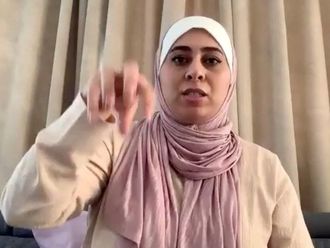Dubai: Iranian President Hassan Rouhani came out on Wednesday against a parliamentary bill to empower vigilantes who enforce Islamic morals, strongly re-asserting a moderate agenda that had taken a back seat since his election last year.
The law, proposed by conservative lawmakers who dominate parliament, would provide legal protection to citizens who take it on themselves to enforce the Islamic dress code and other behaviour prescribed under Iran’s sharia law.
It would bolster the work of vigilantes and in particular the Basiji, volunteer paramilitaries who often patrol streets, and stop cars to interrogate couples about their relationships, to the resentment of many Iranians.
Rouhani’s government has already expressed opposition to the bill on the grounds that it would increase tension in a society already polarised between Islamists and the more secular-minded, but his comments on Wednesday were the strongest so far.
“The sacred call to virtue is not the prerogative of a select group of people, a handful taking the moral high ground and acting as custodians. It is upon all Muslims to exhort love, respect for other and human dignity,” Rouhani told a cheering crowd packed into a stadium in northern Zanjan Province.
“Rue the day some lead our society down the path to insecurity, sow discord and cause rifts, all under the banner of Islam,” he said, his voice shaking with emotion.
Rouhani, himself an Islamic cleric, won a surprised landslide in a presidential election last year on a platform of breaking with the hard line of his predecessor, Mahmoud Ahmadinejad, and seeking to ease tensions with the West.
But while he has taken Iran back to negotiations to address international concerns about Tehran’s nuclear programme, there has been little sign of social reforms inside Iran.
Rouhani’s speech, broadcast live on television, came amid public outrage over a string of acid attacks Isfahan on women deemed to be improperly covered, violence that has been widely condemned, including by religious conservatives.
Rouhani did not refer to the attacks, but left no doubt that hijab, or Islamic dress for women, which for women in Iran means loose-fitting clothing and mandatory covering of the hair, was the central issue.
“Rue the day we see vice manifested only in bad hijab and we tend to overlook lies, slander, corruption and bribery as bigger vices,” Rouhani told the waving stadium crowd where women were standing in a separate section from men.
“I want to see our parliament’s actions resulting in more unity, more cohesion, and more jobs for our young people. No vice is above joblessness, poverty and lack of opportunity to a good education.”












